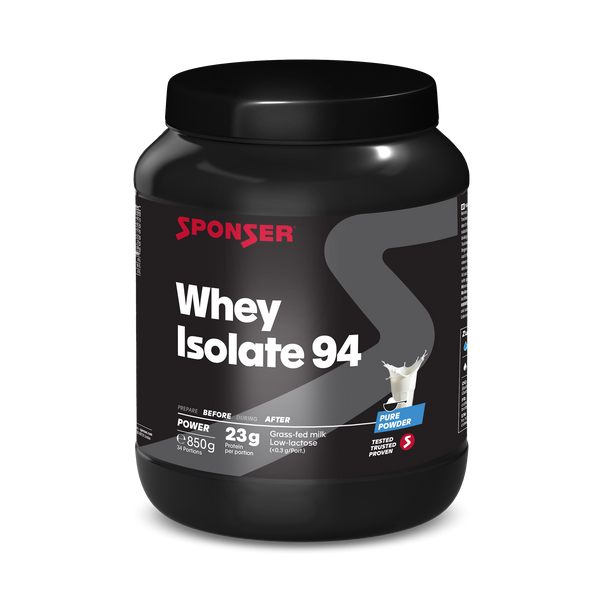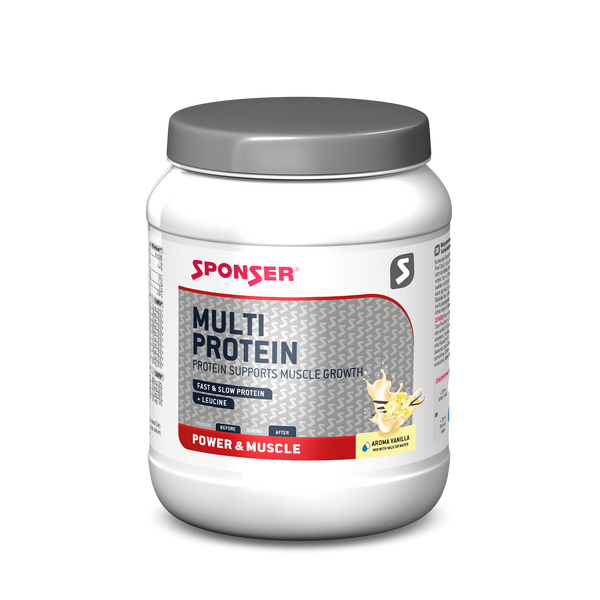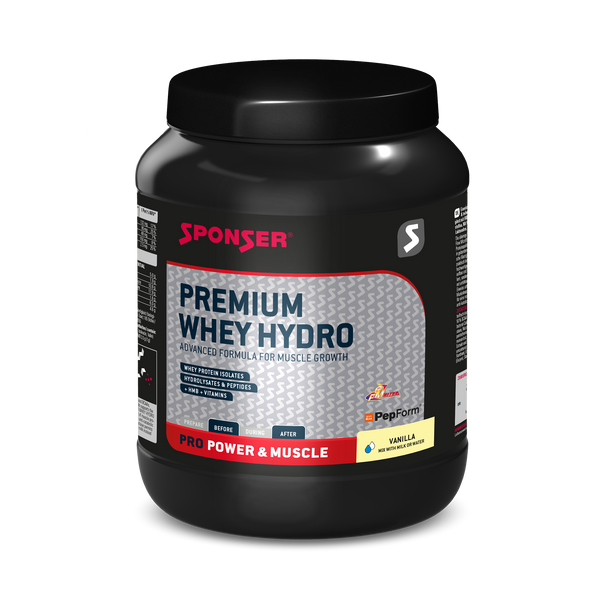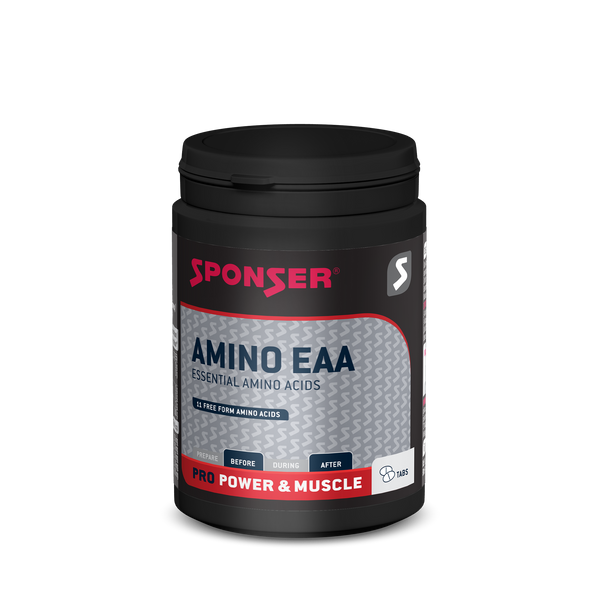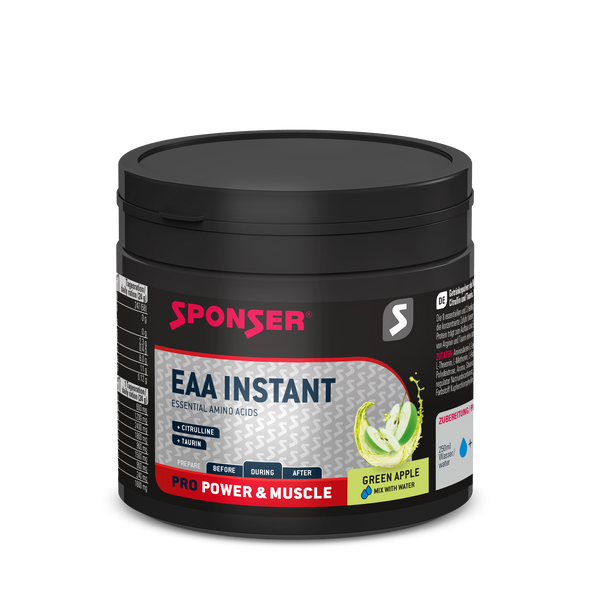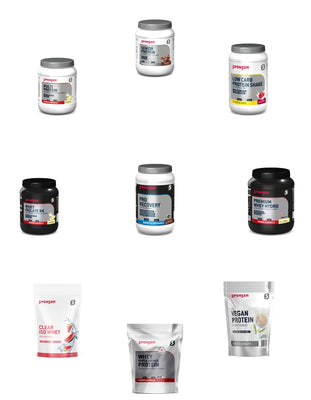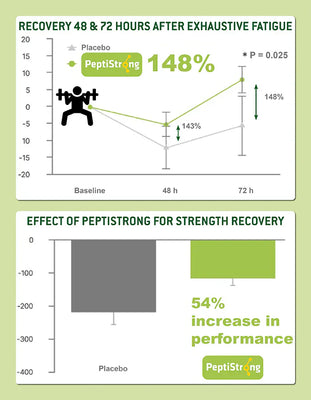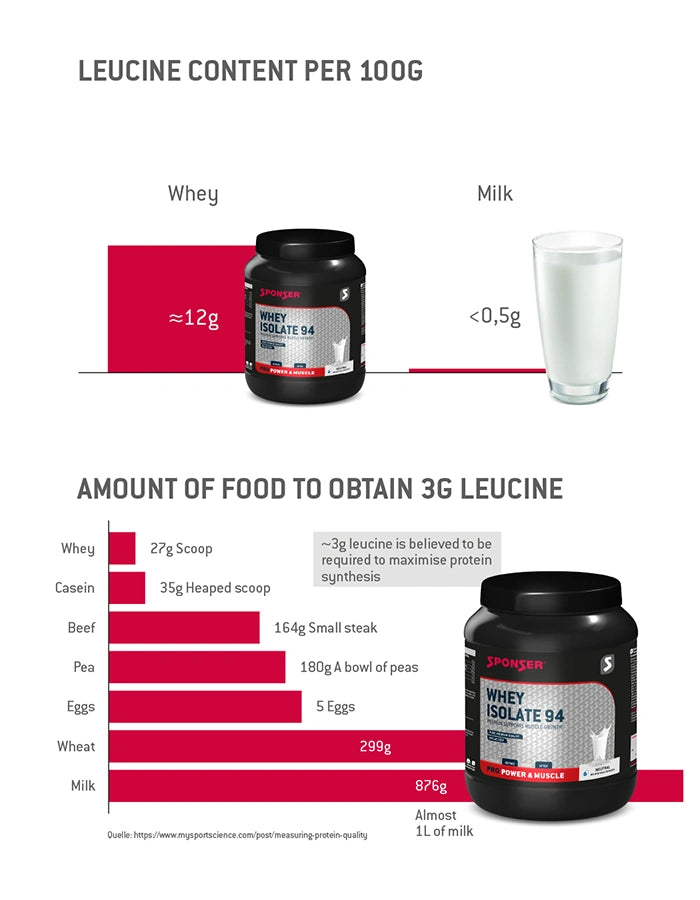
Photo credit: SPONSER SPORT FOOD
Why high protein quality is important for athletes
Protein and its building blocks, amino acids, play a crucial role in sports for effective muscle growth, maintaining muscle mass, repairing stressed muscle fibers, fast recovery after training, and a functioning immune system. Besides the quantity and timing of intake, the quality of a protein source determines its effectiveness. Protein quality is determined by the following three factors:
• amino acid profile
• leucine content
• biological value
Biological value of protein in foods
The biological value indicates how efficiently nutritional protein can be metabolised by the human body and transformed into endogenous protein. The higher the value, the lower the amount of protein required for an effective protein synthesis. A hen's egg has a reference value of 100 according to the classic method of biological value. Proteins that are better metabolised than hen's eggs have a value above 100, while less efficient proteins have a value below 100.
Whey protein has a biological value of around 104, as it is particularly rich in essential amino acids and is quickly absorbed by the body. It has been proven that whey protein is more effective than the corresponding amounts of casein, while casein is in turn more effective than soya protein. Soya protein, for its part, has the highest value of all plant-based protein sources - quinoa, peas, lentils, nuts, etc. By combining different protein sources (e.g. milk and wheat in a ratio of 75:25), the biological value can even be increased to over 120.
Protein products from SPONSER with high biological value
• PREMIUM WHEY HYDRO
• WHEY ISOLATE 94
• PREMIUM PLANT PROTEIN
Amino acid profile and leucine content
High-quality proteins have an amino acid profile that contains all essential amino acids (EAA) in sufficient quantities. Among these, leucine plays a particularly important role. The branched-chain, essential amino acid leucine cannot be produced by the body itself and must be supplied through food. It acts as a central stimulus for the protein synthesis and is therefore, in many ways, crucial for muscle building. Leucine is found in many protein-rich foods such as meat, fish, eggs, dairy products and pulses, with the proportion of L-leucine in animal protein sources lying in the range of 7 to 10 %.
The World Health Organisation (WHO) recommends a daily requirement of around 39 mg per kg of body weight, although the value is significantly higher for people who train intensively (1). Current recommendations for athletes are: 10 g of essential amino acids and 3 g of leucine per intake. In the case of age-related muscle loss (sarcopenia), scientists (2, 3) even call for an intake of 8 to 16 g of leucine per day.
To obtain 3 g of leucine from natural foods, you would have to consume quite large quantities; for example, almost 1 litre of milk, 5 eggs, 150 g of chicken, 200 g of trout, 200 g of cashew nuts, 300 g of wholemeal wheat or 180 g of peas. It is easier, more concentrated and of higher quality if you use protein products from SPONSER®.
SPONSER products with top values for amino acid profile and leucine content
• AMINO EAA & EAA INSTANT
• PREMIUM WHEY HYDRO
• MULTI PROTEIN
• WHEY ISOLATE 94
• PREMIUM PLANT PROTEIN
The purity of the product also ensures a high protein quality
High-quality protein products offer a concentrated intake option and contain hardly any additives or unnecessary fillers. SPONSER produces its products in a sustainable and controlled manner, tested and certified to the highest FSSC 22000 quality standard to exclude impurities and fulfil the highest quality requirements.
Recommended amount of protein for athletes and people on a calorie-restricted diet
The Swiss Sports Nutrition Society has formulated protein recommendations for athletes: Depending on the training intensity and the training purpose, take around 1.3-1.8 g of protein per kg of body weight, whereby 2.0-2.7 g of protein per kg of body weight may be appropriate during phases of intensive strength training or dieting (4).
Timing of protein intake in an athlete's daily life
You need to pay attention not only to the amount of protein, but also to the timing of protein intake. It is important to distribute your protein intake throughout the day. To optimise the protein synthesis, you should consume approx. 20-30 g of protein every 3-4 hours.
Literature
1)
World Health Organization (2002): Protein and amino acid requirements in human nutrition, report of a joint FAO/WHO/UNU expert consultation. Geneva Switzerland, 138-139.
2)
Wilkinson, DJ et al. (2018): Effects of leucine-enriched essential amino acid nd whey protein bolus dosing upon skeletal muscle protein synthesis at rest and after exercise in older women, in: Clinical Nutrition, Volume 37 (2018), Issue 6, 2011-2021.
3)
Schaupp, A et al. (2021): Diagnostisches und therapeutisches Vorgehen bei Sarkopenie. Zeitschrift für Gerontologie und Geriatrie 54 (2021), 717–724.
4)
Hot Topic Protein im Sport Version 3.2, hrsg. von Swiss Sports Nutrition Society.
Author: Remo Jutzeler
Head R&D SPONSER SPORT FOOD
Ing. Applied Food Sciences UAS
MAS Nutrition & Health ETHZ













